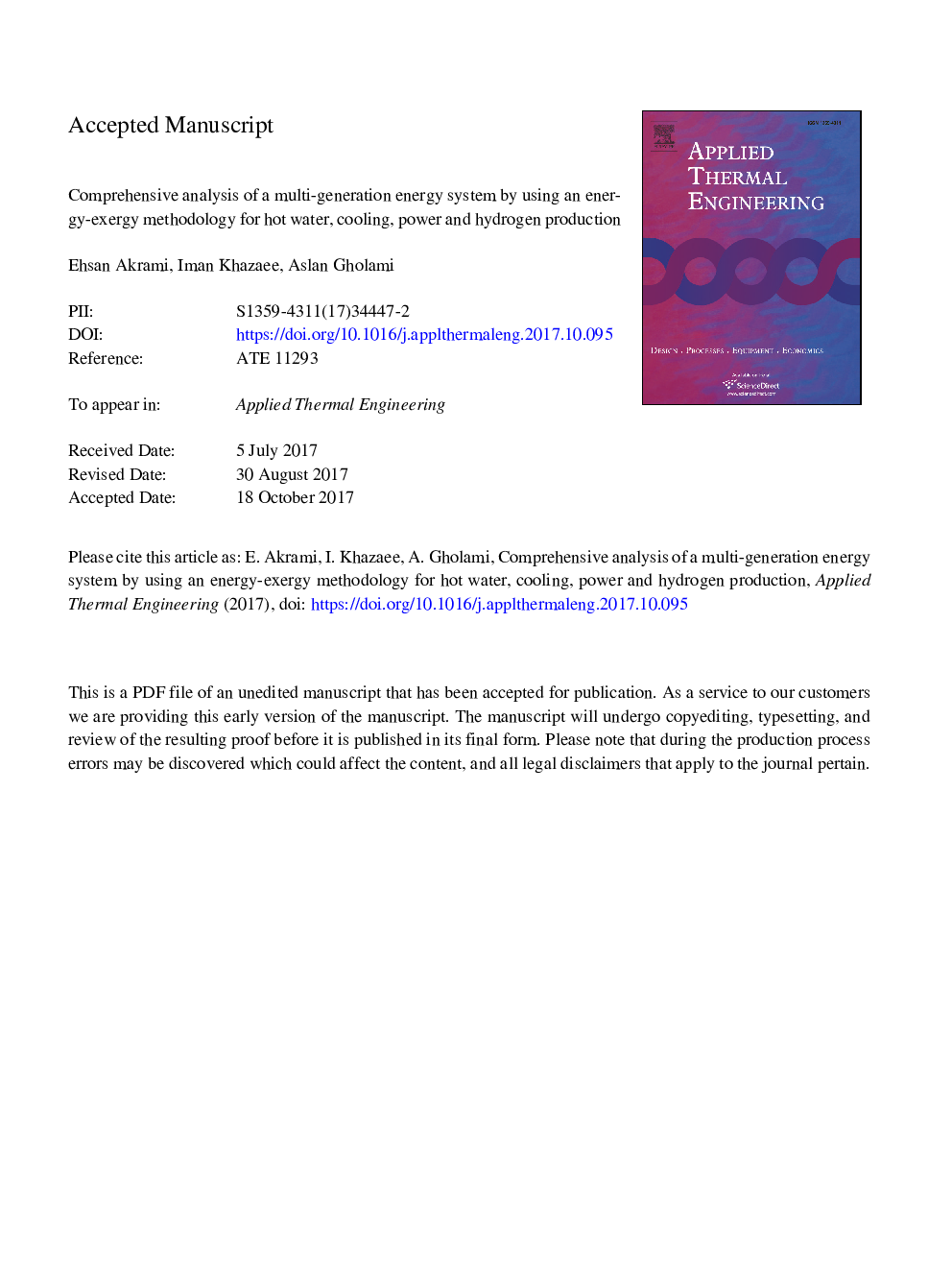| Article ID | Journal | Published Year | Pages | File Type |
|---|---|---|---|---|
| 7046563 | Applied Thermal Engineering | 2018 | 22 Pages |
Abstract
In this study, an energy-exergy methodology was applied to achieve more precise conditions for hot water, cooling, power and hydrogen production via a proposed multi-generation system comprised of a geothermal based organic Rankine cycle, domestic water heater, absorption refrigeration cycle and proton exchange membrane electrolyzer. Furthermore, for evaluation of the proposed system performance, the effects of such key variables as brine temperature, turbine inlet temperature, generator temperature, brine mass flow rate and electrolyzer current density on the related efficiencies of energy and exergy for the whole system were investigated. For specified conditions, the results show that energy and exergy efficiencies of the entire system are calculated around 33.92% and 43.59%, respectively. Moreover, estimation of the exergy destruction rate in each system component indicated that the highest rate of exergy destruction occurred in the heat recovery steam generator (HRSG) with 16.65% of the total amount of exergy input to the system. And finally, net electrical power output, mass flow rate of hot water, cooling capacity and mass flow rate of hydrogen production are as follows: 816.7â¯kW, 7.06â¯kg/s, 1896â¯kW and 0.05g/s.
Related Topics
Physical Sciences and Engineering
Chemical Engineering
Fluid Flow and Transfer Processes
Authors
Ehsan Akrami, Iman Khazaee, Aslan Gholami,
